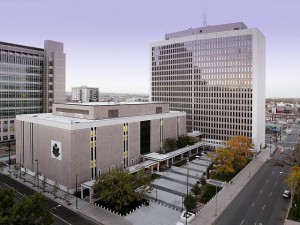The Supreme Court’s recent opinion in Alice v. CLS has been covered by other blogs; so, there is no need to summarize it here. Some random thoughts did occur to me, however.
1) Most humorous statement from the opinion: “In any event, we need not labor to delimit the precise contours of the ‘abstract ideas’ category in this case.” Alice v. CLS, __ U.S. ___ (2014)(slip opinion at page 10).
Of course not — articulating a test for an “abstract idea” might be too helpful to the judiciary, the patent bar, inventors, entrepreneurs, investors, and the economy.
2) In the Court’s opinion, the Court indicated that method and apparatus claims can be equivalents for §101 purposes. Yet, under §271, the Federal Circuit has noted that method and apparatus claims can convey different rights. For example, in NTP, Inc. v. Research in Motion, Ltd., 418 F.3d 1282 (Fed. Cir. 2005), the Federal Circuit noted that apparatus claims could be infringed with some claim elements located outside of the United States, while corresponding method claims must be performed entirely within the United States. This is but one example of how method and apparatus claims protect different subject matter and are not simply one and the same.
3) The determination of patent eligible subject matter has been termed a question of law determined by underlying questions of fact. See Arrhythmia Research Technology v. Corazonix Corp., 958 F.2d 1053 (Fed. Cir. 1992). Judge Lourie recently observed in the oral argument of HIMPP v. HEAR-WEAR TECHNOLOGIES, LLC, No. 2013-1549 (Fed. Cir. May 27, 2014) that the patent examination process is grounded in citation of references and that the role of the judiciary in taking judicial notice of facts is relatively limited. For example, during the oral argument of HIMPP, Judge Lourie remarked:
We have an examination system based on citation of references. I may have used the word ‘slippery slope’ already. But, I worry about that — where an examiner who is of some skill and training in a particular art could simply say ‘Aha, I think, I think, and it is my common knowledge . . . .’ And, they start rejecting claims based on what they ‘think.’ Isn’t that a serious departure from our system of citation of references to reject claims? [Listen]
It doesn’t seem to me to be the function of the appellate court to take judicial notice of the ordinariness of certain decided claim limitations. We can take judicial notice that ‘today is Wednesday’ and ‘we had snow earlier in the week’ — I’m glad you made it through the snow — but, we don’t make rejections based on judicial notice of . . . finding a claim limitation to be common sense. [Listen]
So, if the PTO takes Judge Lourie’s comments to heart, it seems the battle, during examination at least, will turn on to what extent a patent examiner can rally forth evidence that an abstract idea is shown by cited references.
4) In the future, you might see certain industries pursuing bifurcated prosecution, e.g., filing applications with apparatus claims initially and then pursuing method claims via continuations — or an analogous prosecution strategy.

